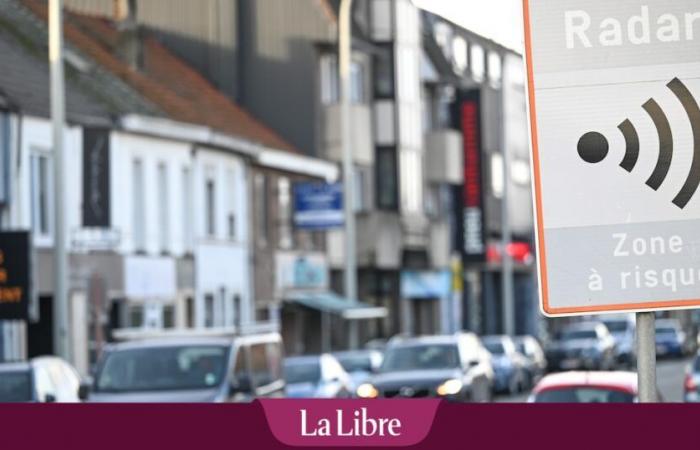Previously, not paying the fine was enough to avoid it: national prosecutors were unable to pursue cases abroad. Now, states are required to provide each other with mutual assistance, via the European Driver Data Exchange (Eucaris), to identify offenders.
Unpaid traffic fines: how Wallonia wants to put an end to impunity
But not all fines have to be paid, even if they concern the right vehicle and the right driver. While the legislation is expected to change in the coming months, it is important to know that, for the moment, only eight offences can be subject to data exchange: speeding; failure to wear a seat belt; running a red light; driving while intoxicated; driving under the influence of drugs; failure to wear a helmet on a motorized two-wheeler; driving on a prohibited lane; and using a mobile phone while driving. Apart from these offences, countries must go through another procedure – particularly long and tedious – and often prefer to abandon it, as the stakes are not worth such an outlay of energy.
A fine that would arrive in your mailbox shortly after the offence for any other offence (bad parking, crossing a white line, driving the wrong way, etc.) would therefore probably arrive illegally and could therefore be contested.
Please note, however, that agreements bind France and the Netherlands with Belgium and that the rule therefore does not apply in these two countries where the exchange concerns all data.
Furthermore, the fine must be written in one of the three national languages. A report in Spanish, Italian or English, for example, does not have to be paid.
Dutch champions of offences in Belgium
Obviously, this rule also applies to foreign motorists who commit offences in our country. And there are many of them: almost 13% of the 8.4 million offences committed in our country concern vehicles registered abroad. A figure that has increased by 130% in five years, according to figures provided by the FPS Justice (see infographic). “It is logical that if the number of offences increases for Belgians, this is also the case for foreigners,” comments Benoît Godart, spokesperson for the Vias Institute. “There are also more section radars on the roads and the margin of tolerance (Editor’s note: we now flash at 121 km/h, margin of error deducted on the motorway) probably also explains this sharp increase in offences committed by foreigners.”
Nationals of neighbouring countries, who are required to drive more frequently in our country than others, are logically also the most penalised. Starting with the Dutch, followed by the French, Germans and Luxembourgers.
It should be noted that, in addition to motorists from neighbouring countries who are logically more punished, vehicles registered in countries such as Poland, Romania or Bulgaria are in the top 10 of offences committed in our country. “This can be explained by the shortage of labour in our country in the construction sector, which is therefore recruiting more and more workers from Eastern countries.”
Finally, in terms of offences, as for Belgian citizens, speed is the most punished offence. It represents 93.7% of offences committed by foreigners in Belgium.






